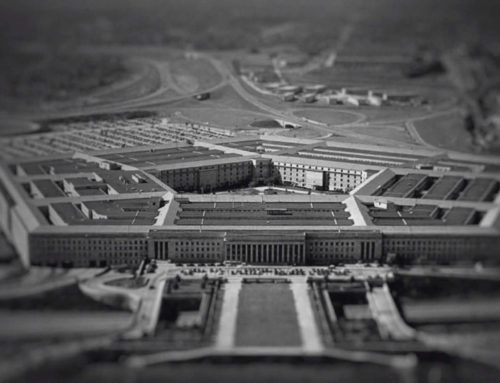Dear Chairwoman Foxx,
During the Rules Committee’s consideration of the rule for H.R. 3838—Streamlining Procurement for Effective Execution and Delivery and National Defense Authorization Act for Fiscal Year 2026—we urge you to include amendments that will support the interests of taxpayers and help ensure appropriate oversight of federal spending.
Specifically, we urge you to make the following amendments in order:
Amendment #66:
This amendment would prohibit Members of Congress, their spouses, and any dependent children from owning or trading stocks, bonds, commodities, futures, or other securities from a defense contractor or which are significantly based on defense contractors. Current Members of Congress and associated individuals would have 120 days from the enactment of the bill to divest from such holdings. In light of the inherent conflicts of interest posed by lawmakers or their immediate families holding a financial stake in companies that may benefit from funding decisions made by those lawmakers, taxpayers and national security would benefit from this prohibition.
Amendment #98:
This amendment would protect taxpayer interests by directing the Secretary of Defense to establish a review panel on fair and reasonable pricing and contract oversight of sole-source contracts for munitions and weapons systems contracts, including related contracts for services and spare parts. In light of an accumulation of reports of Pentagon contractors overcharging the Pentagon for products and services,[i] and of Pentagon contracts increasing in cost compared to original price agreements,[ii] a review of the systems in place to ensure taxpayers receive fair and reasonable pricing for Pentagon contracts is necessary.
The review panel required by this amendment would assess a sample of fixed price contracts and subcontracts to determine the extent to which these contracts experience cost increases, the extent to which they exceed fair and reasonable prices, the degree of competition for commercial spare parts contracts, and the degree to which contracts and subcontracts for spare parts that are subject to certified cost and pricing data requirements exceed fair and reasonable prices compared to contracts and subcontracts for space parts that are not subject to such requirements. These assessments will arm Congress with valuable insight into prevalence of overpriced contracts, and into the efficacy of tools at the Pentagon’s disposal to ensure taxpayers receive fair and reasonable prices on Pentagon contracts.
Amendment #713:
This amendment would repeal the statutory requirements for components of the Department of Defense to submit unfunded priority lists (UPLs) to Congress alongside the Department’s formal budget submission. DOD components could still submit UPLs, they simply would not be legally required to do so. The requirement for UPLs subverts the normal budget process by forcing military service leaders and combatant commanders to circumvent the Pentagon’s civilian leadership, which is responsible assessing the Department’s budgetary needs in a holistic manner that accounts for funding needs across departments and commands. Despite military service leaders repeatedly requesting that nothing in their UPL submissions displace items included in the formal budget request, Congress routinely funds UPLs at the expense of real priorities included in the budget request.[iii]
The price tag of UPL submissions has risen dramatically over the past six years. According to GAO, “Department of Defense (DOD) components submitted unfunded priorities to Congress totaling $134 billion from fiscal year 2020 through fiscal year 2025, an increase of 73 percent over the time frame when adjusted for inflation.”[iv] In FY2026, UPLs totaled over $53 billion, nearly three times the cost of UPLs in FY2024, which totaled $18.4 billion.[v]
Repealing the statutory requirement for UPLs would not prohibit any DOD component from submitting UPLs in the future, but it would serve to reduce the number and cost of UPLs by limiting submissions to those made voluntarily. It would also serve to support DOD’s formal budget request by reducing instances of UPLs funded through cuts to priorities included in the formal budget request. Taxpayers and national security require a holistic, sustainable Pentagon budgeting process that provides for the national defense while accounting for fiscal realities. Repealing the requirements for UPLs would help advance such a process.
Amendment 897:
This amendment would require any component of the Department of Defense that fails to achieve a qualified or unqualified audit opinion to forfeit 0.5 percent of its budget to the Treasury Department for deficit reduction. The amendment exempts military personnel accounts and the Defense Health Program account, and allows the president to waive the requirement if they certify that such a reduction would harm national security or members of the military deployed in combat zones.
The Pentagon has repeatedly failed to receive clean audit opinions on each of its components, and failed to achieve such opinions on the timelines it has laid out for itself. This requirement would create meaningful incentives for the Pentagon to improve its financial accounting processes in order to achieve clean audit opinions across the department’s components.[vi]
Sincerely,

Steve Ellis
President
CC:
Members of the Rules Committee
The Honorable Mike Rogers
The Honorable Adam Smith
[i] Chasan, Aliza. “60 Minutes Overtime How the Pentagon falls victim to price gouging by military contractors.” CBS News. May 21, 2023. https://www.cbsnews.com/news/pentagon-budget-price-gouging-military-contractors-60-minutes-2023-05-21/; Mitchell, Ellen. “Defense contractor Raytheon to pay almost $1B for defrauding DOD.” The Hill. Oct. 18, 2024. https://thehill.com/homenews/4942259-raytheon-qatar-corruption-fraud-bribes/
[ii] Gledhill, Julia. “How the Defense Industry Price Gouges the Pentagon.” The National Interest. Aug. 1, 2024. https://nationalinterest.org/feature/how-defense-industry-price-gouges-pentagon-212135
[iii] Murphy, Gabe. “Pentagon Budgeting Shouldn’t Look Like This.” The Hill. June 1, 2024. https://thehill.com/opinion/congress-blog/4697854-pentagon-budgeting-shouldnt-look-like-this/
[iv] “DOD Should Address All Statutory Elements for Unfunded Priorities.” United States Government Accountability Office. Sep. 4, 2025. https://www.gao.gov/assets/gao-25-107581.pdf
[v] “Pentagon Wish Lists Nearly Triple in Two Years.” Taxpayers for Common Sense. July 14, 2025. https://www.taxpayer.net/national-security/pentagon-wish-lists-nearly-triple-in-two-years/
[vi] “Pentagon Fails Audit for 7th Straight Year.” Taxpayers for Common Sense. Nov. 18, 2024. https://www.taxpayer.net/national-security/pentagon-fails-audit-for-7th-straight-year/










